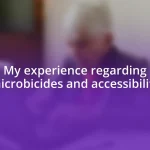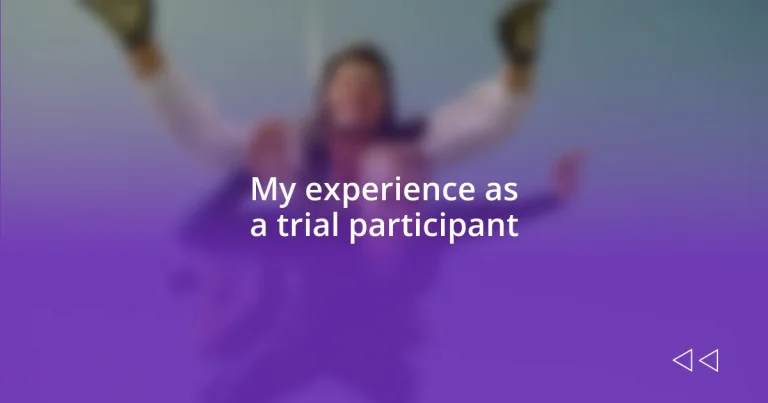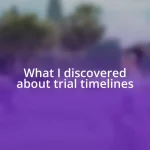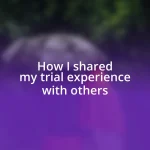Key takeaways:
- Participating in a clinical trial fosters a sense of community and shared purpose, allowing participants to feel empowered and connected through their collective experiences.
- Understanding the informed consent process is crucial; it involves transparency, the right to ask questions, and recognizing voluntary participation and support systems.
- Emotional support from staff and peers is essential for managing the challenges of trial participation, including potential risks, time commitments, and maintaining mental resilience.
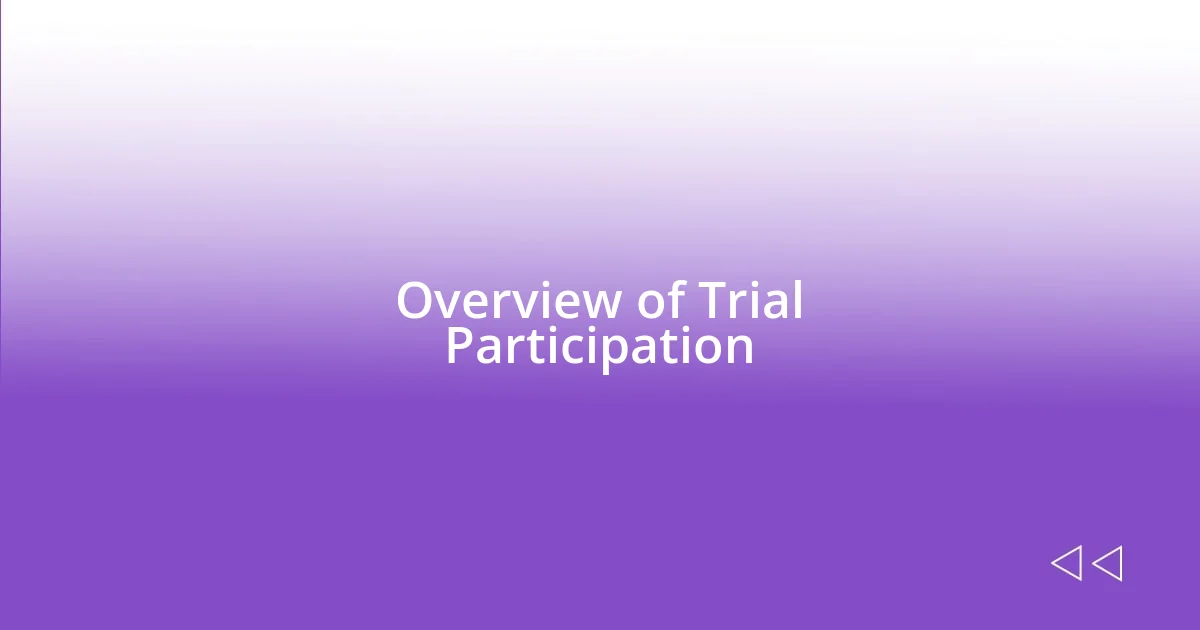
Overview of Trial Participation
Participating in a clinical trial can be a life-changing decision. I remember when I first considered joining a study; I was both excited and anxious. Would my participation really contribute to something bigger?
In my experience, trial participation is not just about being a subject; it’s about being part of a community that seeks to push science forward. I was often struck by the camaraderie among participants, each of us sharing our stories and hopes. It felt empowering to realize that our collective journeys could lead to medical breakthroughs.
Every trial has its own set of protocols, requirements, and potential risks, which can be daunting. I vividly recall the informed consent process, where I had to weigh my options carefully. It made me realize how important it is to be well-informed and ask questions. Have you ever found yourself in a situation where knowledge made a difference? For me, feeling informed allowed me to approach my participation with more confidence.
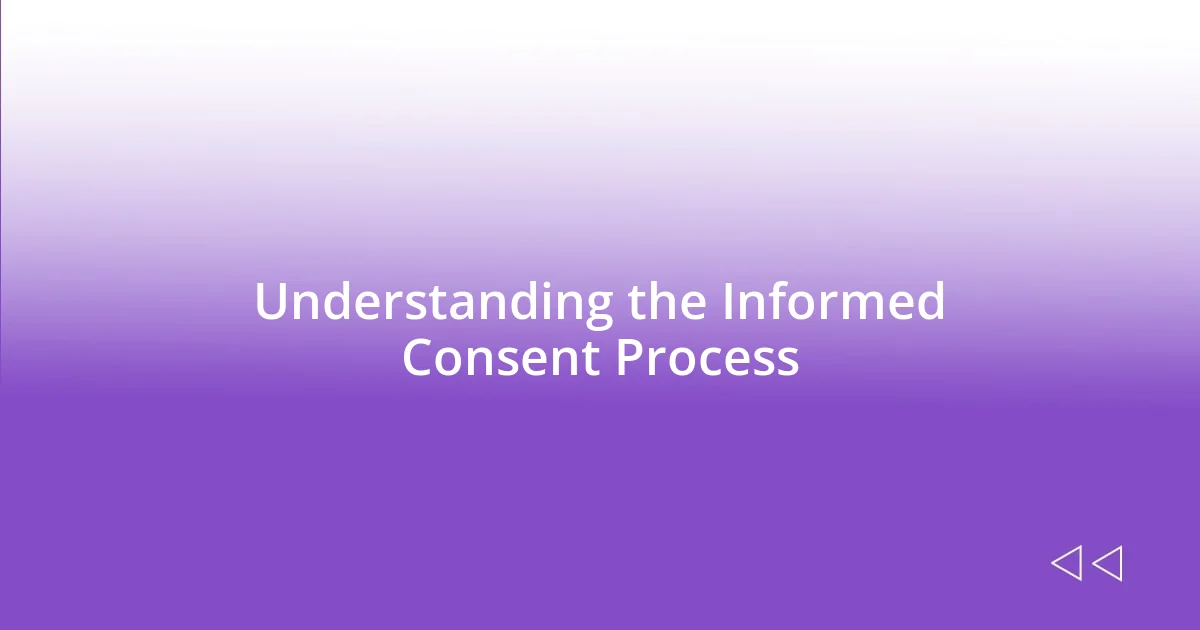
Understanding the Informed Consent Process
Understanding the informed consent process is crucial when deciding to join a clinical trial. I recall sitting in a small, quiet room while the study coordinator explained the details. As they walked me through the paperwork, I felt a mixture of apprehension and curiosity. It was a moment where I realized I wasn’t just signing a document; I was being given an overview of what my commitment entailed, including potential risks and benefits. This clarity helped me feel more in control of my decision.
When navigating the informed consent process, it’s important to remember a few key points:
– Transparency: Ensure all aspects of the trial, including risks and procedures, are clearly explained.
– Questions: Don’t hesitate to ask about anything you don’t understand—it’s your right to know.
– Voluntary Participation: Your participation is voluntary, and you can withdraw at any time without penalty.
– Documentation: The informed consent document should be detailed but also clear, allowing you to make an informed decision.
– Support: Seek support from family or friends who can help you digest the information.
Reflecting on my experience, I felt empowered when I understood that informed consent wasn’t just a formality. It was a critical dialogue, helping me engage fully with the trial’s purpose and my potential contribution to medical research.
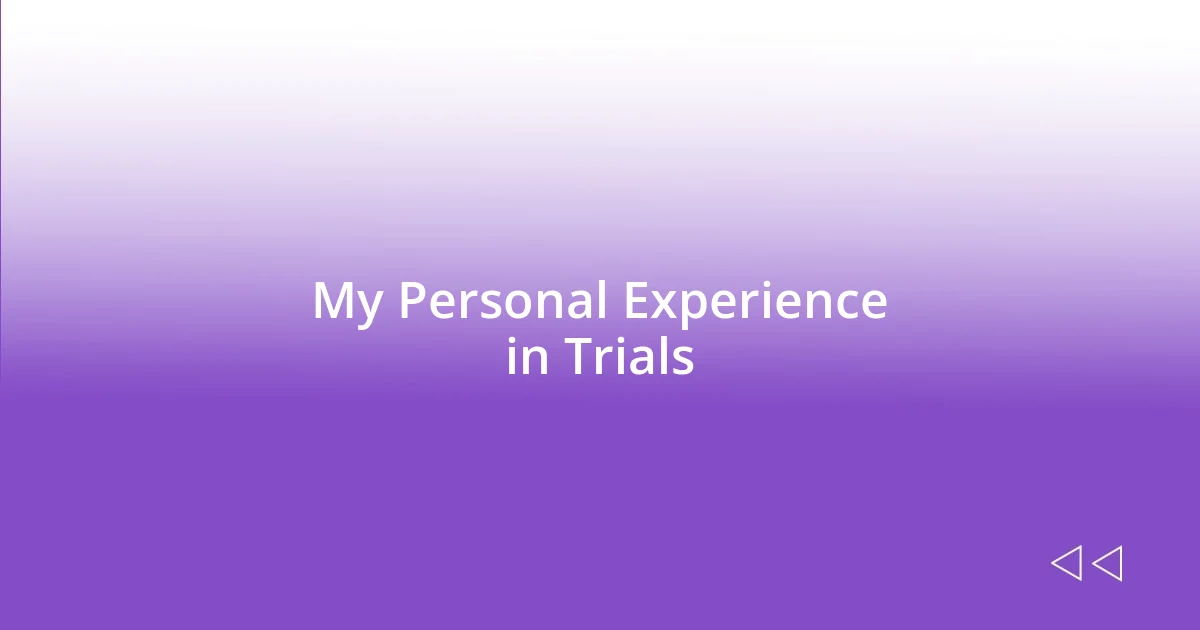
My Personal Experience in Trials
Participating in a trial was an eye-opening experience for me. I didn’t just become a number; I became part of a living experiment aimed at improving lives. I remember one of the first meetings, where I met a fellow participant who shared how the condition affected their life. Hearing their story helped me put my own feelings into perspective, and I realized the importance of our shared experiences. There’s something so special about coming together with others who truly understand your journey—it’s like an unspoken bond.
Shortly after joining the trial, the reality of the regular check-ins sank in. Each appointment brought a mix of excitement and trepidation. Would I experience side effects? How would the medication work for me? During one follow-up, I expressed my concerns to a nurse. She reassured me with her warmth and expertise, sharing her insights based on other participants’ experiences. That moment underscored how crucial it is to have support in the process, as it eased my anxiety and helped me remain focused on the potential benefits of my participation.
Through every stage of the trial, I learned that patience is as important as hope. There were days when I found myself frustrated by the slow progress. However, I reminded myself of the greater purpose—every visit and every piece of data contributed to essential research. Reflecting on those moments, I realize they taught me resilience. It’s this journey with its ups and downs that truly enriched my experience and deepened my understanding of what being a trial participant really means.
| Experience | Emotional Insight |
|---|---|
| Shared Stories | Bonding with Others |
| Regular Check-Ins | Support from Staff |
| Learning Patience | Building Resilience |
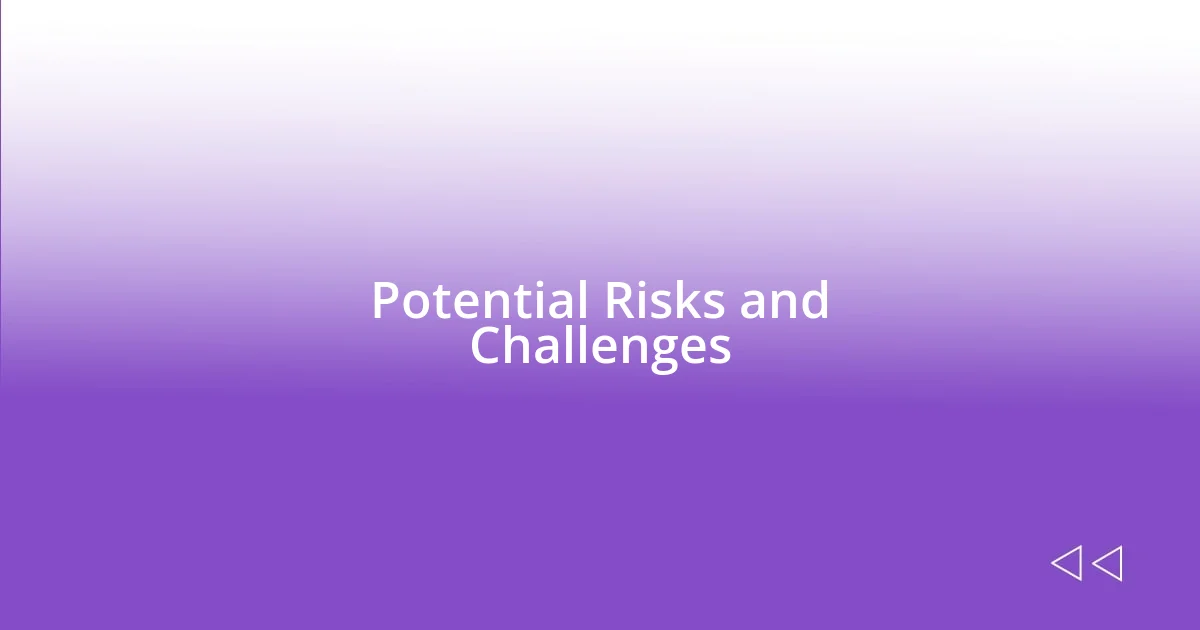
Potential Risks and Challenges
Engaging in a clinical trial, while rewarding, does carry certain risks and challenges that participants must face. I vividly recall attending a session where they discussed the potential side effects. The thought of experiencing unanticipated reactions to the treatment was daunting. I remember grappling with questions like, “What if I don’t tolerate the medication well?” Knowing I was stepping into the unknown added an extra layer of anxiety.
One particular challenge I encountered was the time commitment. The frequent appointments were demanding, often requiring adjustments to my work schedule. There were days when I felt overwhelmed by the added pressure. But in those moments, I realized that prioritizing my health and the research process was a necessity. It made me reflect on how sometimes we need to sacrifice convenience for a greater cause.
Lastly, I learned that emotional support is indispensable. There were times when I felt isolated in my experience, questioning my role in the trial. Fortunately, the support groups organized by the trial team were invaluable. Sharing my thoughts and feelings with others in similar situations not only relieved my burden but also fostered a sense of solidarity. Isn’t it fascinating how a shared journey can turn challenges into opportunities for connection and growth?
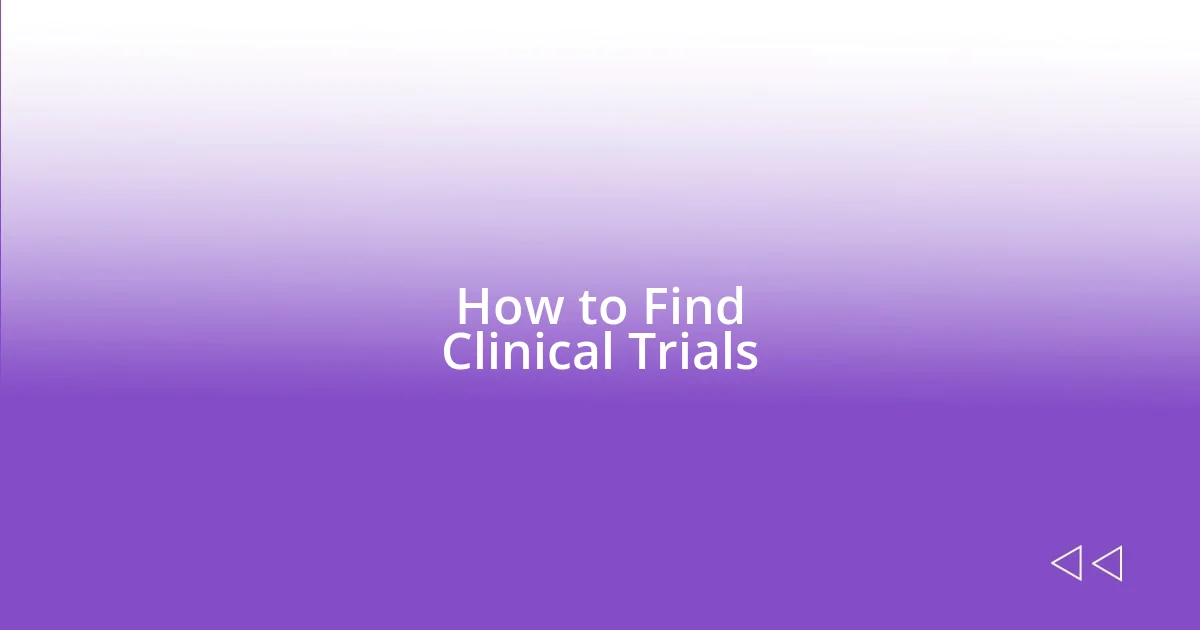
How to Find Clinical Trials
Finding clinical trials can feel like a daunting task, but I discovered some practical steps that made the process a lot easier. One method I found particularly effective was using the ClinicalTrials.gov website. It’s a treasure trove of information, allowing you to search for trials based on your health condition, location, and even the phase of the trial. I often felt not just informed, but empowered as I browsed through different studies, seeing firsthand what was available to me.
Another approach I took was reaching out to my healthcare provider. I was pleasantly surprised when my doctor not only mentioned potential trials but also connected me with research coordinators. Their insights were invaluable. They helped answer my questions and offered advice tailored to my specific situation. Have you ever felt uncertain about something and found that talking to someone who knows the ropes made all the difference? That’s exactly how I felt when I got such personalized guidance.
Lastly, I stumbled upon local hospitals and universities conducting research. I attended a health fair that advertised various studies open for recruitment. Honestly, it was a bit overwhelming, but there’s something exhilarating about stepping out and learning about opportunities firsthand. I realized that being proactive can really pay off; just showing up and asking questions opened doors I didn’t even know existed. What’s your preferred way to gather information? I’d love to hear about your strategies too.


